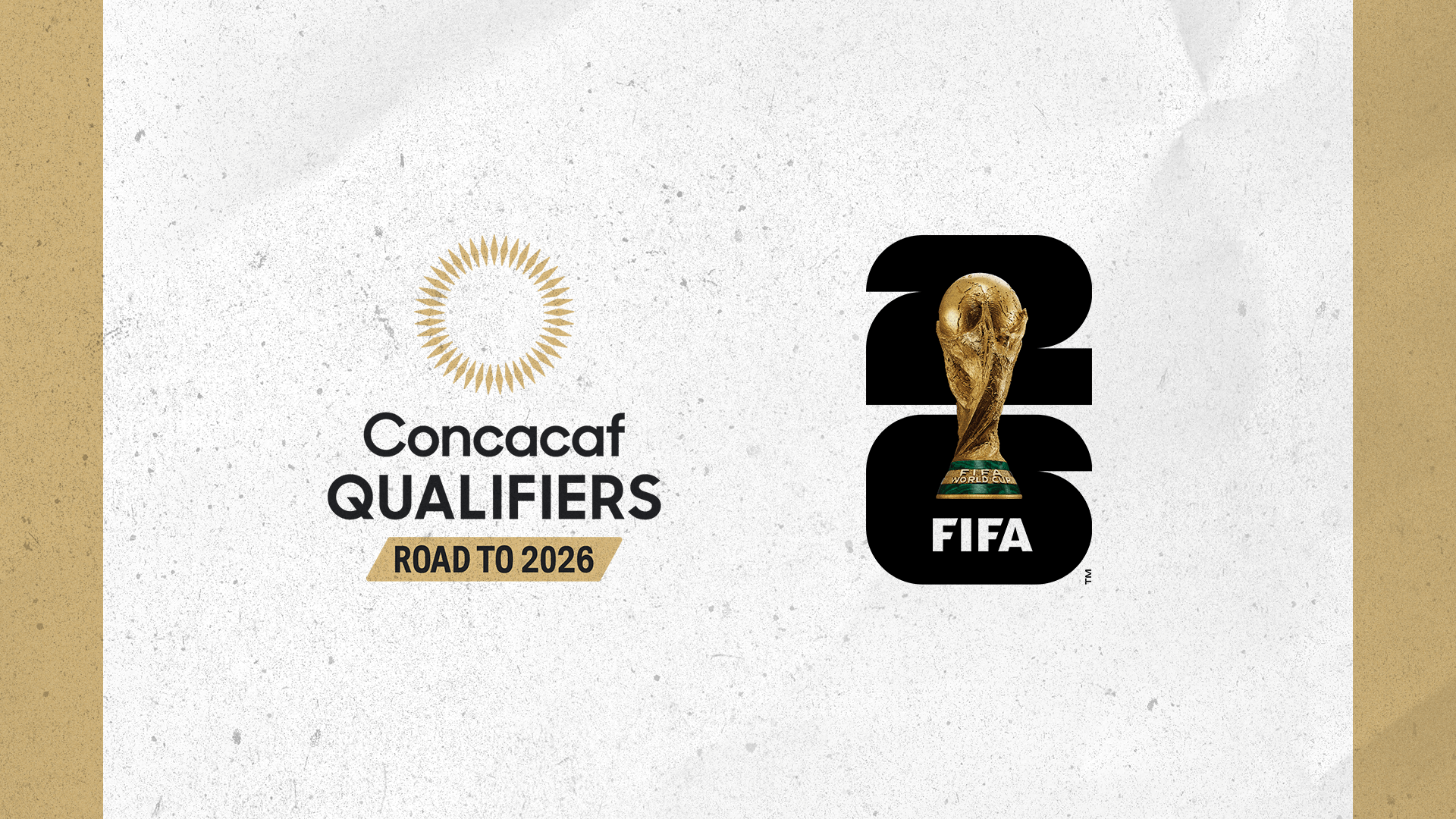Welcome to the ultimate guide on the FIFA Qualification process for the 2026 World Cup! As football fans around the globe gear up for the prestigious event, it’s important to understand the ins and outs of the qualification process. With the anticipation building up for the tournament, teams from different confederations will battle it out for a spot in the biggest football extravaganza. The FIFA Qualification 2026 is set to be a thrilling and competitive journey filled with passion, determination, and unforgettable moments. In this blog, we will delve into everything you need to know about the qualification process, key match-ups, top contenders, and much more. Get ready to embark on the Road to FIFA Qualification 2026!
Introduction to FIFA Qualification 2026
The FIFA World Cup 2026 is set to be one of the most anticipated sporting events, with countries from around the globe vying for a spot in the prestigious tournament. The qualification process for the FIFA World Cup 2026 is crucial, as only the best teams will secure a place in the final tournament.
Qualification Criteria
Teams will compete in regional qualification tournaments to earn a spot in the FIFA World Cup 2026. The qualification process will be based on each confederation’s specific criteria, ensuring a fair and competitive selection of teams for the final tournament.
Key Dates and Matches
The FIFA qualification matches for the 2026 World Cup are scheduled to take place over a period of several months, with intense competition and thrilling matches expected to unfold. Fans can expect to witness top footballing nations battling it out on the field for a chance to represent their country on the biggest stage in football.
- Opening qualification matches – [Date]
- Crucial playoff matches – [Date]
- Final qualification matches – [Date]

History and Significance of FIFA World Cup
The FIFA World Cup is an international football tournament contested by the senior men’s national teams of the members of FIFA, the sport’s global governing body. The tournament has a rich history dating back to its inaugural edition in 1930.
Evolution of FIFA World Cup
Initially, the FIFA World Cup featured 13 teams, with Uruguay emerging as the first-ever champion. Over the years, the tournament expanded, and more nations joined the competition, with the number of participating teams increasing gradually.
Global Significance
The FIFA World Cup is widely regarded as the most prestigious football tournament in the world, captivating audiences globally and uniting nations through the love of the sport. It transcends cultural boundaries and brings people together through a shared passion for football.
Competing for the prestigious trophy and representing their countries on the world stage holds immense significance for players, fans, and nations alike, fostering national pride and international camaraderie.
/cdn.vox-cdn.com/uploads/chorus_image/image/71639959/WorldCupBandwagoner_Getty_Ringer.0.jpg)
The Qualification Process for FIFA 2026
The qualification process for FIFA 2026 is a rigorous and competitive journey that national teams from around the world undertake to secure a spot in the prestigious tournament. The process involves multiple rounds of qualification matches, culminating in the final selection of the teams that will compete in the FIFA World Cup in 2026.
Regional Qualification Tournaments
Each continent has its own regional qualification tournament where national teams compete against each other to earn a spot in the FIFA World Cup. These tournaments are organized by the respective regional football confederations, such as UEFA, CONMEBOL, CAF, AFC, and CONCACAF.
The top teams from each region qualify for the FIFA World Cup, with the number of spots allocated to each region based on factors like the strength of the region’s football teams and historical performance in previous tournaments. Teams must undergo intense training and preparation to excel in these highly competitive regional tournaments.
Intercontinental Playoffs
In addition to the regional qualification tournaments, there are intercontinental playoffs where teams that did not secure a direct berth to the FIFA World Cup can compete for a spot. These playoffs involve teams from different regions facing off against each other in a series of matches to determine the final qualifiers.
- The teams participating in the intercontinental playoffs are usually those that finished in the runner-up positions in their respective regional qualification tournaments or teams that have performed well in previous editions of the FIFA World Cup.

Key Teams and Players to Watch
As the journey to FIFA Qualification 2026 unfolds, several key teams and players are emerging as ones to watch closely. These teams and players are expected to make a significant impact on the road to the prestigious tournament.
France
France can never be discounted when it comes to international football. With a talented squad that includes players like Kylian Mbappé and Antoine Griezmann, they are a force to be reckoned with on the field.
Image:
Brazil
Brazil, known for their flair and skill, boasts players like Neymar and Alisson Becker who can turn the game around in an instant. Watch out for their mesmerizing style of play.
Argentina
Argentina is another team to keep an eye on, especially with the likes of Lionel Messi and Lautaro Martinez leading the charge. Their creative play and determination make them a formidable opponent for any team.
Implications of FIFA 2026 Qualification
Qualifying for the FIFA 2026 World Cup brings significant implications for both the participating teams and their respective countries. It not only showcases the talent and prowess of the players but also boosts the national pride and unity among citizens. The economic impact of qualification includes increased tourism, merchandise sales, and investments in sports infrastructure.
Global Recognition and Exposure
Securing a spot in the FIFA 2026 World Cup provides global recognition to the team and the country they represent. The games are watched by millions worldwide, offering exposure to players, coaches, and sponsors. This exposure can attract new opportunities for international collaborations and endorsements.
Additionally, participating in a major sporting event like the FIFA World Cup can enhance the country’s reputation on the global stage, promoting tourism and trade.
Economic Boost
Hosting or participating in the FIFA World Cup can have a significant economic impact on the host country. The event attracts tourists, generates revenue from ticket sales, and boosts the local economy through increased consumer spending. Investments in infrastructure, such as stadiums and transportation systems, can also create jobs and long-term benefits for the country.
- The economic benefits from hosting FIFA 2026 can extend beyond the tournament year, leaving a lasting legacy for the nation.
Frequently Asked Questions
-
- What is FIFA Qualification 2026?
- FIFA Qualification 2026 refers to the process through which national teams compete in various matches and tournaments to secure a spot in the FIFA World Cup scheduled for 2026.
-
- How do national teams qualify for the FIFA World Cup 2026?
- National teams qualify for the FIFA World Cup 2026 through different regional qualifying tournaments where they compete against other teams to earn a spot in the final tournament.
-
- When and where will the FIFA World Cup 2026 take place?
- The FIFA World Cup 2026 is scheduled to take place in North America, with matches being played in the United States, Canada, and Mexico. The exact dates and venues will be announced closer to the tournament.
-
- How many teams will participate in the FIFA World Cup 2026?
- The FIFA World Cup 2026 is expected to host a total of 48 teams, an increase from the 32 teams that participated in previous editions.
-
- What are some key changes in the qualification process for the FIFA World Cup 2026?
- One of the key changes in the qualification process for the FIFA World Cup 2026 is the expanded number of teams participating, providing more opportunities for countries to compete on the global stage.
Final Thoughts on FIFA Qualification 2026
In conclusion, the road to FIFA Qualification 2026 is an exciting journey filled with anticipation, passion, and determination. National teams from around the world are gearing up to compete for a spot in the prestigious tournament. As we’ve explored the intricacies of the qualification process, we’ve learned about the significance of each match, the strategies teams employ, and the dreams that drive players and fans alike.
It’s a time of unity and fierce competition as countries vie for the chance to showcase their skills on the world stage. The anticipation is building, and the stakes are high. Let’s brace ourselves for an unforgettable journey towards FIFA Qualification 2026!

